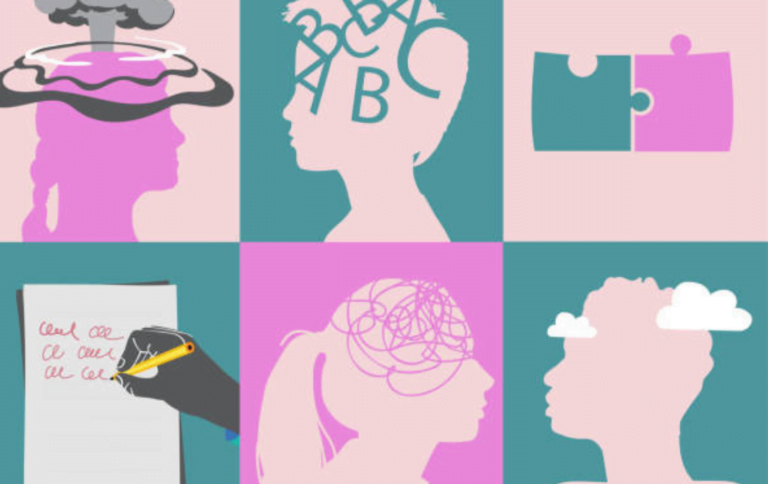Cognitive Overload: How Does it Affect the Human Mind

Cognitive Overload – We are constantly bombarded with stimuli, tasks, and decisions that demand our attention. As we strive to keep up with the ever-increasing demands on our cognitive resources, it’s crucial to understand the concept of cognitive overload and its impact on our productivity, decision-making, and overall well-being.
Read: Cognitive Load Theory In Instructional Design
What is Cognitive Overload?
Cognitive overload is a state where the brain is overwhelmed by excessive information or tasks, leading to mental strain and reduced cognitive performance. It can cause symptoms like difficulty concentrating, memory lapses, increased mistakes, stress, and anxiety.
Cognitive overload affects the brain by overwhelming the working memory, hindering its ability to process and manage information effectively. This can result in decreased productivity, burnout, and even health issues if not managed properly. Strategies like prioritizing tasks, mindfulness, taking breaks, and seeking support can help mitigate the impact of cognitive overload.
Causes of Cognitive Overload
Several factors can contribute to cognitive overload, including:
1. Information overload: The sheer volume of information we encounter daily, from emails and social media to news and work-related tasks, can overwhelm our cognitive resources.
2. Multitasking: Attempting to juggle multiple tasks simultaneously can strain our cognitive abilities and reduce our effectiveness in each area.
3. Complexity: Some tasks or situations are inherently complex, requiring us to process and integrate a large amount of information simultaneously.
4. Time pressure: Deadlines and time constraints can add stress and pressure, further taxing our cognitive resources.
Symptoms of Cognitive Overload
When we experience cognitive overload, we may exhibit various symptoms, such as:
1. Difficulty concentrating or focusing on a specific task
2. Feeling overwhelmed or stressed
3. Making more mistakes or errors in our work
4. Experiencing fatigue or mental exhaustion
5. Struggling to make decisions or solve problems effectively
Consequences of Cognitive Overload
Cognitive overload can have serious consequences, both in the short and long term. Some of the potential consequences include:
1. Decreased productivity and performance
2. Increased stress and anxiety
3. Burnout and job dissatisfaction
4. Poor decision-making and problem-solving abilities
5. Negative impact on physical and mental health
How can Cognitive Overload be Prevented or Managed
Cognitive overload can be prevented or managed by implementing various strategies that reduce the amount of information or mental stimulus presented to learners, allowing them to process and retain information more effectively. Here are some key strategies:
Focus on the Topic
Staying on topic and removing irrelevant content helps prevent cognitive overload by reducing distractions and allowing learners to focus on the essential information.
Use Conversational Language
Using normal, everyday language instead of technical or jargon-filled text makes it easier for learners to follow and understand the content, reducing cognitive load.
Embrace White Space
Minimizing the use of images, background sounds, and music in e-learning courses helps prevent cognitive overload by reducing the amount of information learners need to process.
Split Complex Problems into Small Steps
Breaking down complex topics into smaller, manageable steps makes it easier for learners to process and understand the information, reducing cognitive overload.
Let Learners Practice
Providing opportunities for learners to practice what they have learned helps solidify information in their long-term memory and reduces cognitive overload.
Use Microlearning Techniques
Presenting information in small, easy-to-process chunks, such as through microlearning, helps prevent cognitive overload by allowing learners to process and absorb information at a manageable pace.
Prioritize Tasks
Prioritizing tasks based on urgency and importance helps minimize cognitive overload by directing attention to the most critical tasks and reducing mental strain.
Take Regular Breaks
Taking short breaks throughout the day allows the brain to rest, recharge, and process information, improving focus, concentration, and overall cognitive functioning.
Avoid Poorly Designed Courses
Avoiding courses with poorly illustrated examples or inconsistent supporting text helps prevent cognitive overload by reducing the split attention effect and allowing learners to focus on the content.
Limit Interruptions
Minimizing interruptions during study or work sessions helps prevent cognitive overload by reducing task switching and allowing learners to maintain their focus.
Don’t Skip the Fundamentals
Ensuring a solid understanding of the basics before moving on to more advanced topics helps prevent cognitive overload by providing a foundation for new information and reducing the need for excessive processing.
Pace Yourself
Pacing oneself during study or work sessions helps prevent cognitive overload by allowing the brain to process and integrate information at a manageable rate, reducing mental fatigue.
Reduce Extraneous Cognitive Load
Eliminating unnecessary elements that are not intrinsic to the learning task, such as unclear instructions or visual clutter, helps reduce extraneous cognitive load and allows learners to focus on the essential information.
Present Information Effectively
Presenting information in a clear and concise manner, such as through the principles of multimedia learning, helps reduce cognitive load by making it easier for learners to process and understand the content.
The Role of Technology in Cognitive Overload
While technology has brought many benefits, it has also contributed to the problem of cognitive overload. Constant notifications, social media updates, and the expectation of immediate responses can disrupt our focus and strain our cognitive resources.
To manage the impact of technology on cognitive overload, it’s important to set boundaries, limit distractions, and use technology in a way that supports our cognitive needs.
Conclusion
Cognitive overload is a significant challenge in today’s fast-paced world, but it’s one that we can manage with the right strategies and mindset. By understanding the causes and symptoms of cognitive overload, and implementing effective coping mechanisms, we can maintain our cognitive performance, reduce stress, and improve our overall well-being. Taking care of our cognitive health is essential for success, happiness, and fulfillment in all areas of life.






